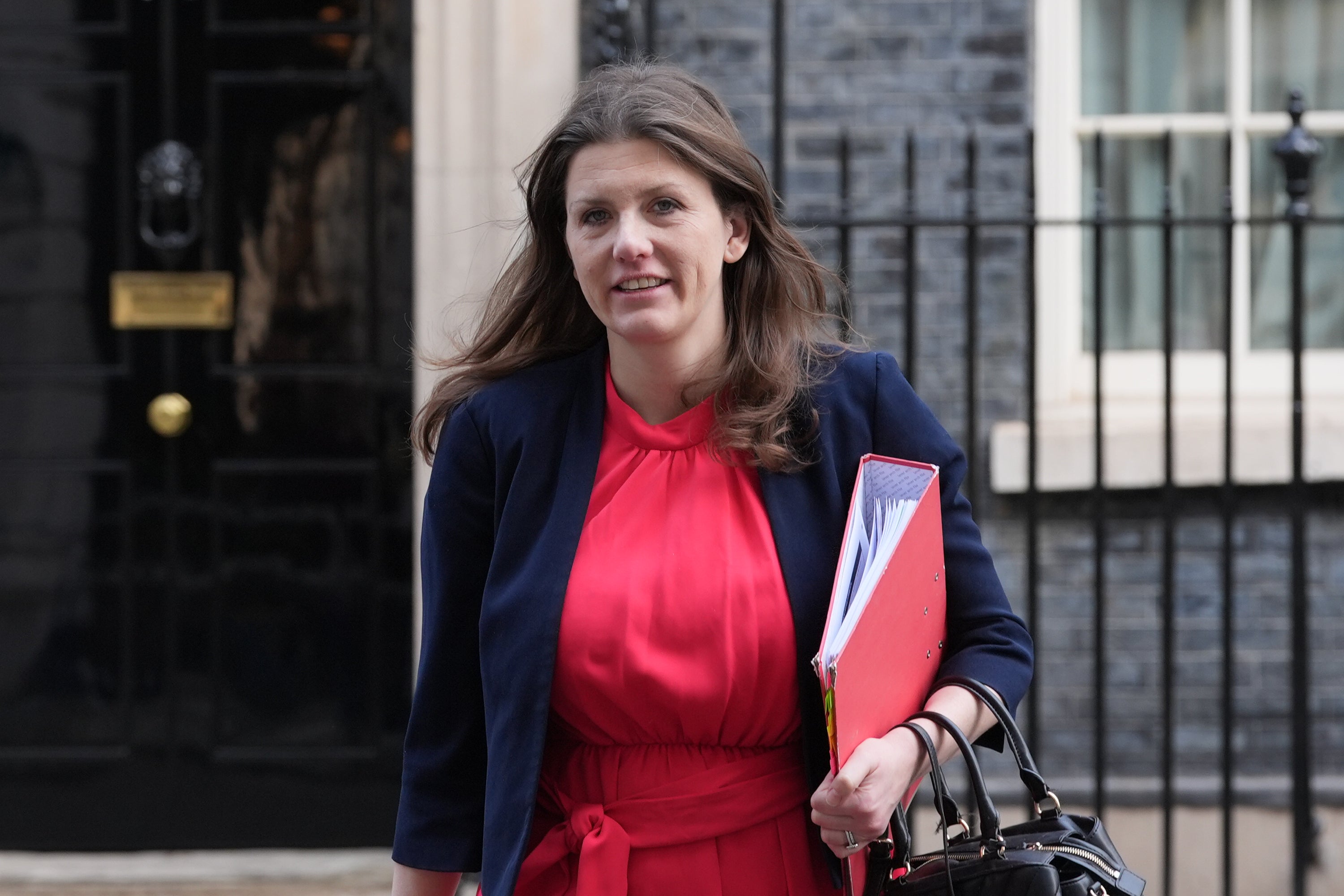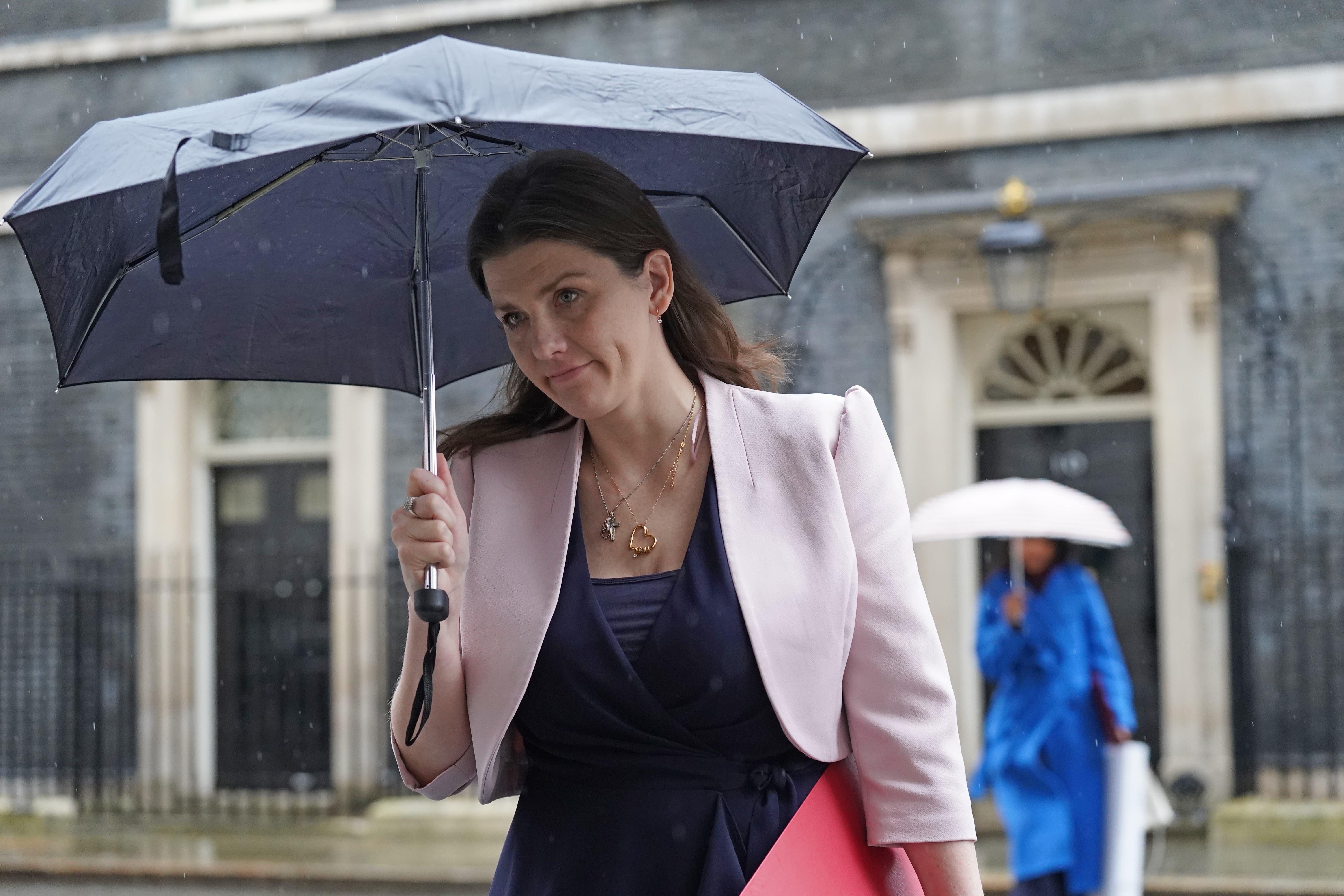Cost of Michelle Donelan libel case to taxpayer finally revealed – and it’s likely to rise again
The full bill for the taxpayer could be even higher once the costs of a separate investigation by UK Research and Innovation (UKRI) are factored in

Your support helps us to tell the story
From reproductive rights to climate change to Big Tech, The Independent is on the ground when the story is developing. Whether it's investigating the financials of Elon Musk's pro-Trump PAC or producing our latest documentary, 'The A Word', which shines a light on the American women fighting for reproductive rights, we know how important it is to parse out the facts from the messaging.
At such a critical moment in US history, we need reporters on the ground. Your donation allows us to keep sending journalists to speak to both sides of the story.
The Independent is trusted by Americans across the entire political spectrum. And unlike many other quality news outlets, we choose not to lock Americans out of our reporting and analysis with paywalls. We believe quality journalism should be available to everyone, paid for by those who can afford it.
Your support makes all the difference.The taxpayer paid more than £34,000 to cover the costs of a libel case that saw science secretary Michelle Donelan reach a settlement with an academic she had accused of expressing support for Hamas.
The Department for Science, Innovation and Technology had already confirmed it had paid £15,000 to settle the libel action brought by Prof Kate Sang “without admitting any liability”.
However, in a letter to Labour’s shadow science secretary Peter Kyle, the department’s permanent secretary Sarah Munby admitted the full cost was more than twice that figure, with another £19,385 spent on legal costs.
The figure includes £7,785 of costs incurred by the Government Legal Department and another £11,600 spent on external counsel, with neither figure including VAT.
The full bill for the taxpayer could be even higher once the costs of a separate investigation by UK Research and Innovation (UKRI) are factored in.
Ms Munby said the taxpayer had covered the costs as ministers were indemnified for “things done or decisions made in the course of their ministerial duties”.
Opposition figures have called for Ms Donelan to pay back the money herself.
Mr Kyle said the fact taxpayers were picking up the bill was “a slap in the face to hardworking families”, adding the money had been “wasted on unprofessional and libellous behaviour from a Conservative cabinet minister”.
He said: “Instead of trying to cover up the true cost of her actions, Michelle Donelan should have had the decency to pay the money back to the taxpayer.”
Liberal Democrat deputy leader Daisy Cooper said: “People’s taxes should not be used to bail out disgraced Conservative ministers. This saga stinks of a rotten cover-up, with Donelan at its core.”
Prof Sang launched her libel action after Ms Donelan tweeted a letter she had written to UKRI in October, expressing “disgust and outrage” that Prof Sang and another academic, Dr Kamna Patel, had “shared extremist views” and, in Prof Sang’s case, expressed sympathy for Hamas after the 7 October attacks in Israel.
The letter followed a tweet by Prof Sang saying “This is disturbing”, and containing a link to an article by the Guardian newspaper describing the response to the Hamas attacks in the UK, while Dr Patel had retweeted a post describing Israeli actions as “genocide and apartheid”.
Ms Donelan’s intervention triggered an investigation by UKRI, which had appointed the academics to its advisory group on equality, diversity and inclusion (EDI).

Details obtained under freedom of information rules by website Research Professional News found the UKRI investigation had cost £23,280, including VAT, putting the total cost to the taxpayer of Ms Donelan’s letter at almost £60,000.
Last month, Ms Donelan accepted that Prof Sang’s comments referred to the Guardian story as a whole, and not just the headline, which focused on the government’s crackdown on support for Hamas.
She also accepted that there was “no evidence” the academic was a supporter of Hamas.
The Department for Science, Innovation and Technology has been contacted for comment.